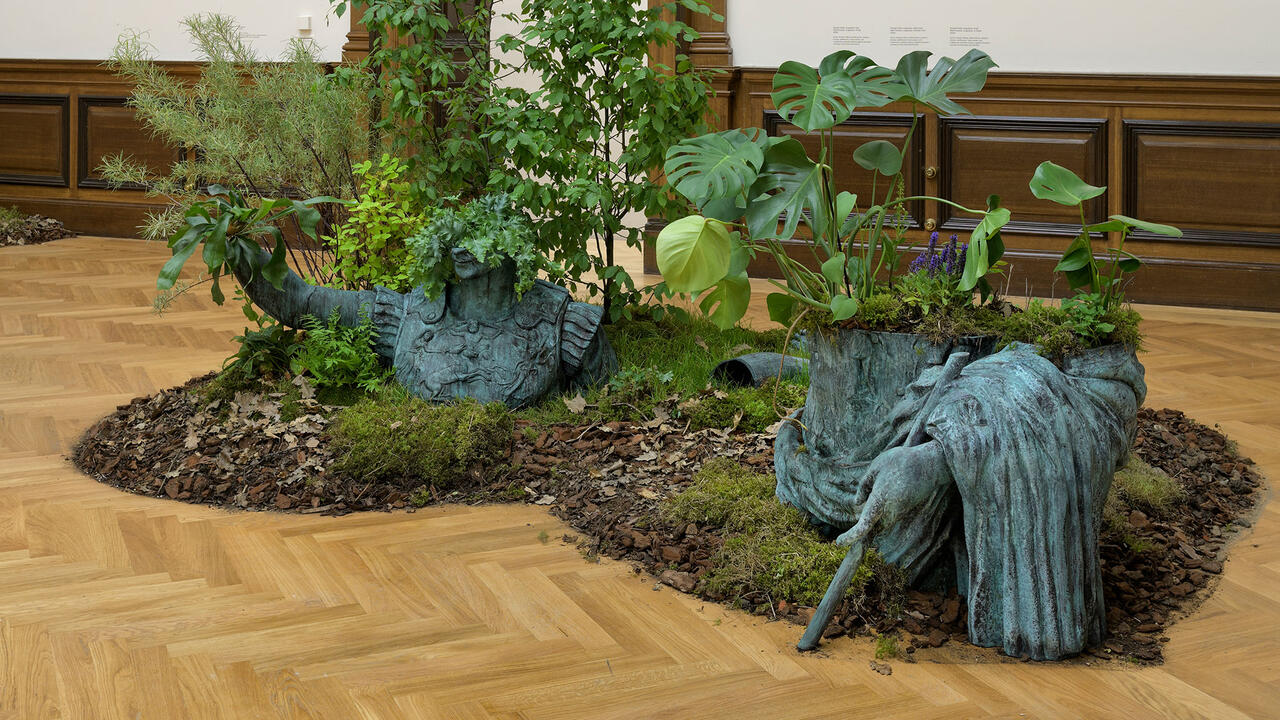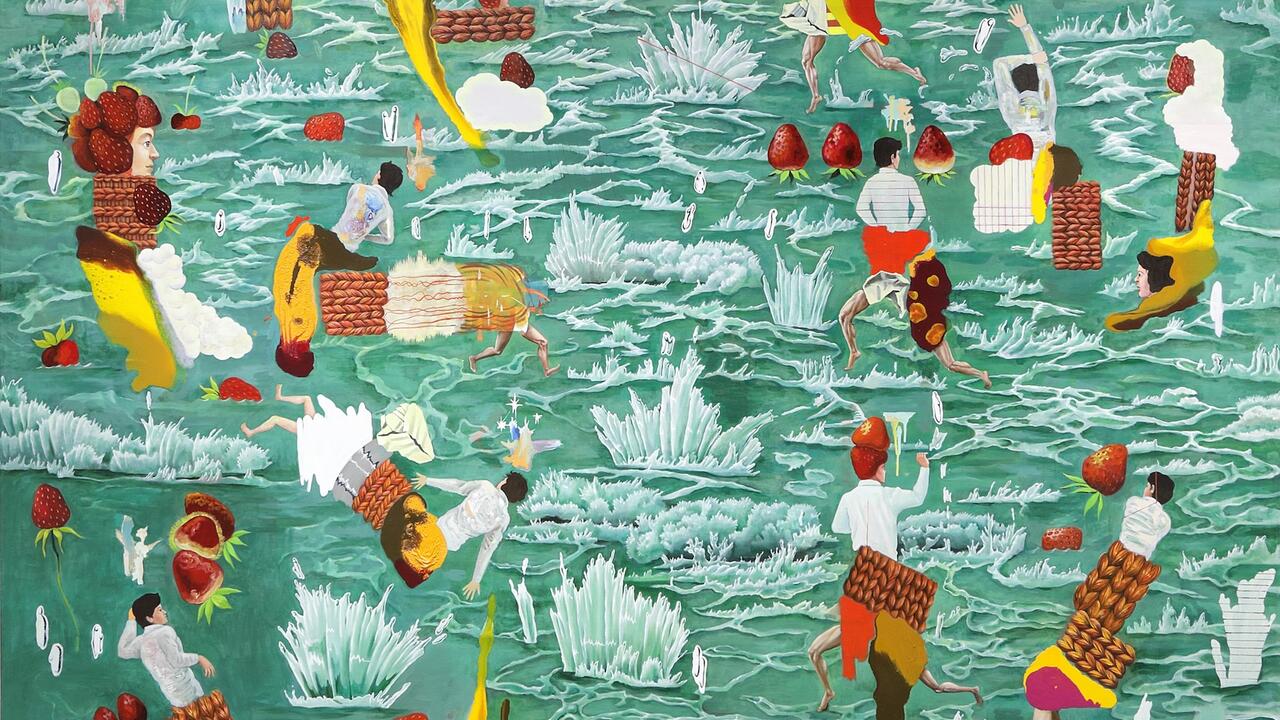Zoë Paul's Slow Flow: From Permaculture to Primitivism
Informed by her heritage, the Athens-based artist reflects on technology’s gradual erosion of social relations at Spike Island, Bristol
Informed by her heritage, the Athens-based artist reflects on technology’s gradual erosion of social relations at Spike Island, Bristol

The sound of trickling water pervades ‘La Perma-Perla Kraal Emporium’, Zoë Paul’s ambitious solo exhibition at Spike Island, where she has transformed the cavernous gallery into an intimate, temple-like setting. Here, under subdued lighting, her elegant ceramic and textile works appear like ancient relics. The aquatic soundtrack emanates from Sebil (Public Fountain, 2018), a fountain at the centre of the space comprising four conjoined ceramic heads that spew water from their lip-like spouts. For Paul, who was raised by South African parents between the UK and Greece and now lives in Athens, this emblematic centrepiece references age-old communal fountains in Mediterranean village squares – sites where communities traditionally gathered to share news and exchange gossip. Informed by her heritage and formative years on the Greek island of Kythira, Paul’s works are concerned with the dissolution of such traditions and the gradual erosion of social relations under modernity.

The relationship between rural communities and technology is addressed in Paul’s modest tapestries woven onto decaying refrigerator grills. A green diamond is interrupted by variegated patches of thread in Mazeuvie (Series 1.1) (2012), forming an image recalling interference on an analogue television. In the adjacent diptych Tenir (To Hold, 2013), the rusting industrial supports emerge from a mass of streaky stitches, intersecting the muted geometric forms. Using traditional techniques, these works reference the diffusion of domestic refrigerators in Greece, mourning the impact that such technologies have had on the social fabric of provincial neighbourhoods. As Paul explains, in the sweltering summers, meat that could not be preserved was previously shared among neighbours, but with the arrival of artificial refrigeration such communal habits waned as individualism took hold.
If Paul’s tapestries bemoan the fragmentation of communal culture, her clay-bead curtains aim to promote social exchange. Dominating the exhibition space, Land of the Lotus Eaters (2018), is a striking, eight-and-a-half-metre-long hanging that eschews abstraction in favour of the figurative. Here, the naked bodies of six muscular figures are composed from thousands of tiny hand-rolled beads fired at different temperatures to create a range of earthy brown, white and blue hues. Inspired by an episode from Homer’s Odyssey (800 BCE) in which Odysseus’s intoxicated men lose their desire to return home, Paul’s lounging figures can be read as a call to resistance in the face of modernity’s relentless drive for progress. Nearby, visitors are invited to create beads for prospective curtains in the participatory installation La Perma-Perla Kraal Emporium (2018), from which the exhibition takes its name (perma relating to permaculture; perlais Spanish for bead; Kraal is a Zulu term for village). It’s an exchange of sorts, where, sitting at a long marble table, participants are served herbal tea from ceramic teapots while they roll clay. Here, as the adjacent fountain babbles, conversations around the artist’s diverse influences are encouraged to flow, from permaculture and primitivism to classical mythology and the agricultural methods of Japanese farmer and philosopher, Masanobu Fukuoka. Equally likely is some good old gossip.

Despite her neo-luddite tendencies, Paul is not advocating an off-grid existence. Rather, in taking her cues from the genial pace of bygone times, she encourages us to slow down, to assess the effects of modernity upon our lives – both at an individual and societal level – and to consider what has been lost to our technologically driven age. Yet, for an artist so clearly concerned with the fragmentation of community and to whose practice social relations are increasingly integral, it is curious that Paul’s carefully considered art remains firmly gallery-bound. I wonder what directions her work could take and the type of conversations that might be shared if, like many socially engaged artists, she ventured beyond institutional walls and into the public square.
Zoë Paul ‘La Perma-Perla Kraal Emporium’ runs at Spike Island, Bristol, until 8 July.
Zoë Paul, Land of the Lotus Eaters, 2018, clay, porcelain, steel, brass and silver, installation view, Spike Island, Bristol. Courtesy: Spike Island, Bristol





















